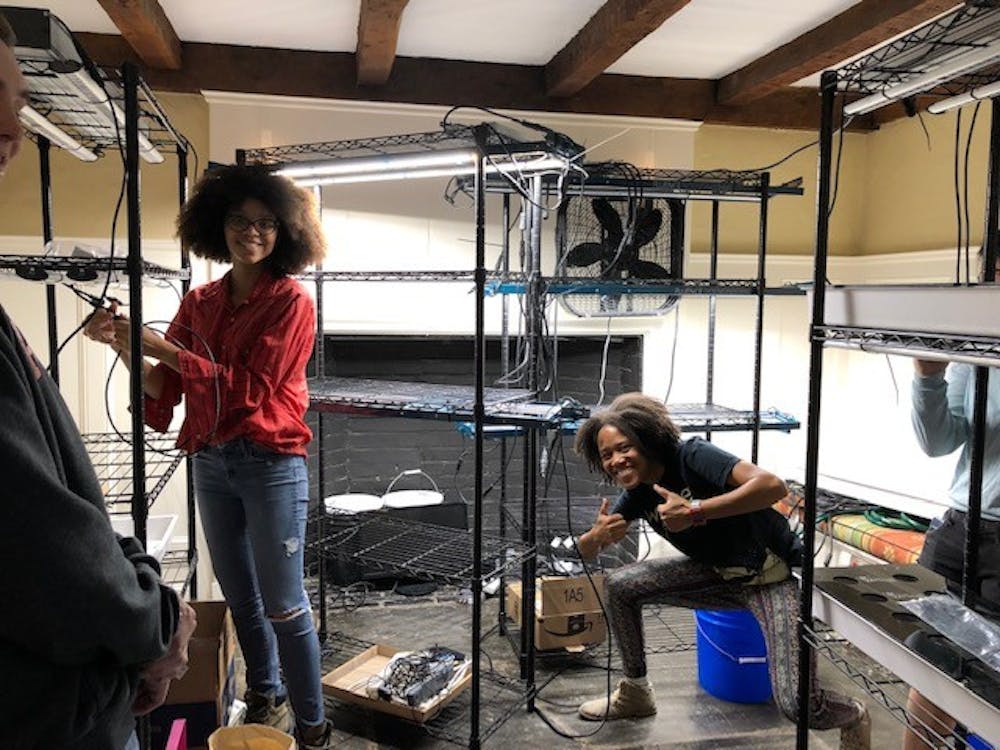After a brief hiatus for the summer, the Forbes Vertical Farm is set to reopen this month.
The farm, which was dismantled at the end of last semester, has been rebuilt over the past two weekends in the lobby of Forbes College.
The farm began in the fall of 2018 as an offshoot of the main Princeton Vertical Farming Project (PVFP), which was launched by Paul Gauthier, a former associate research scholar in the Department of Geosciences. The PVFP was founded in April of 2017 to engage University students in sustainable farming practices and provided fertile ground for research.
The PVFP ended with Gauthier’s departure this past summer, and the main farm housed in Moffett Laboratory was shut down. The latest Forbes offshoot will further the original goal of demonstrating that farming can fit into the busy life of a student at the University.
Gauthier now works as a Senior Agricultural Scientist for Bowery Farming in New York City.
It is meant “to show students that this type of farming works, and that it tastes really good,” said Kaylin Xu ’22, who served as manager of the Forbes farm last year.
“It’s also a mood-booster, to see that much green indoors,” Xu said. “I’ll walk by the lobby, and there will be students just staring at the plants.”

Photo Courtesy of Kaylin Xu ’22

The setup was attended by students from the Pink House, Greening Dining, and the Princeton Student Climate Initiative (PSCI), among others. Gauthier, Forbes College Dean Patrick Caddeau, and Forbes Faculty Fellow Ryo Morimoto have also assisted.
While some of the equipment was stored in the basement of the college, most of it had to be lugged back from Moffett. A new automatic watering system was installed — good news for Xu, who had to carry buckets to water the plants last semester.
Basil, tomatoes, strawberries, cilantro, and lettuce will return to the farm. Arugula and broccoli are also in the works.

A few students present to help this past Sunday expressed their enthusiasm for the future of the project.
“I’m excited for the herbs,” said Milan Eldridge ’20, “and just in general the food that we’re going to grow.”
“I’m excited about the variety,” Jordan Bowman-Davis ’23 said.
As a first-year, Bowman-Davis was new to the farm, but other participants had prior experience.
“I think that we have a lot of space, even though it’s in this small alcove,” said Olivia Foster ’20, who worked on a project with the farm this summer. “There’s a decent amount of space to be able to experiment with different types of crops.”
Xu is heartened by the level of interest in the farm and is hoping to make the experience more collaborative.
“It’s going to be mostly student-run this year,” Xu said. “I want it to reach more people. We’re looking to increase student engagement in general.”
As examples, Xu mentioned starting a message board with updates, hosting events and tastings, partnering with the Forbes Garden Project, and getting input from the Forbes community about what they would like to see.
“There’s a lot we can do,” Xu said.








